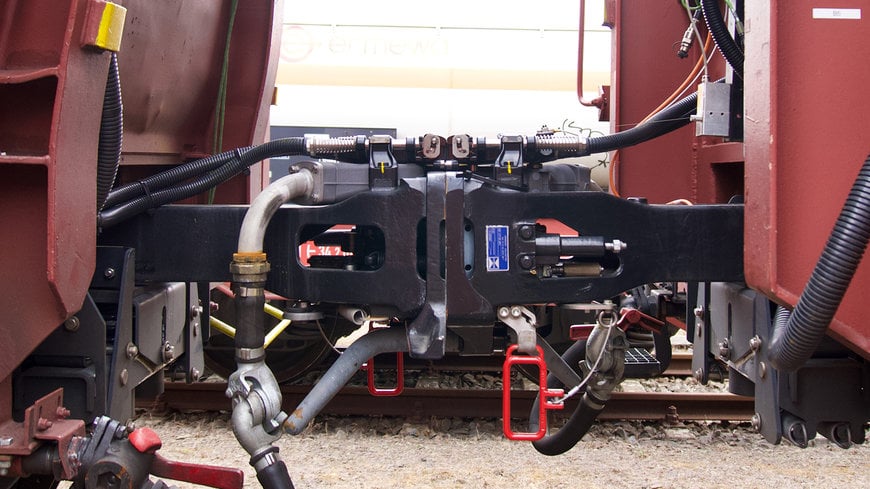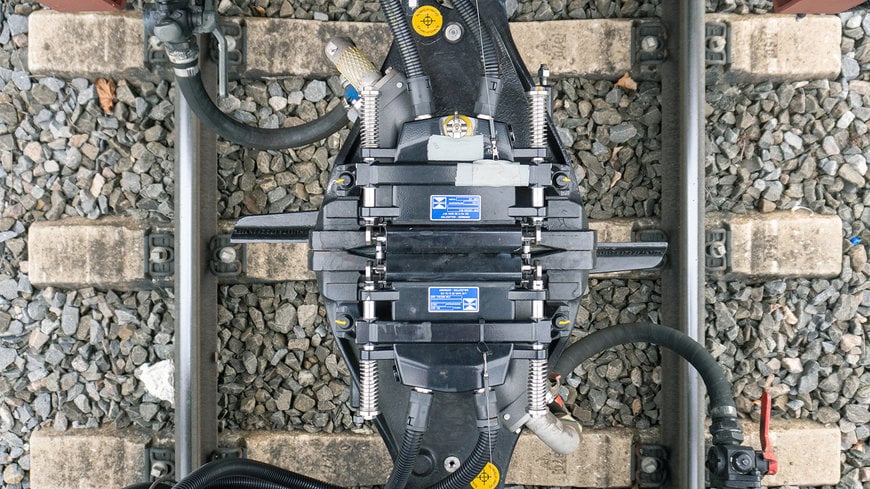OBB Digital Automatic Coupling in Europe: D-A-CH for Swift Implementation and Collaborative Funding
The rail freight transport sector is set to undergo digitalization to ensure its future viability.

- Transport Ministers Sign Joint Position Paper
- Call for Financing Concept and Cross-Border Plan from EU
- DAC Crucial for Transport Transition and Achievement of Climate Goals
This necessitates the implementation of Digital Automatic Coupling (DAC), as it enables faster and more efficient assembly of freight trains, ensuring that goods reach their destinations more quickly. Transport ministers from Austria, Germany, and Switzerland are in agreement: European rail freight transport must be modernized.
To underscore this consensus, Federal Minister for Mobility, Leonore Gewessler, along with her counterparts Volker Wissing (Germany) and Albert Rösti (Switzerland), jointly signed the position paper "The DAC is Coming!" on Tuesday. This signifies their commitment to the swift introduction and collaborative financing of the Digital Automatic Couplingin rail freight transport. The DAC is expected to propel European rail freight transport into the 21st century by significantly increasing capacity, productivity, quality, and safety.
The ministers have indicated their general openness to co-financing at the national level through the signed position paper. However, for a pan-European introduction of the DAC, the participation of all European countries is essential. "I am pleased that together with our partners from Germany and Switzerland, we have signed a crucial initiative for the introduction of the Digital Automatic Coupling in European rail freight transport. This technology is not only a step towards more advanced mobility solutions but also a very important component for greater climate protection, in line with the goals of the EU Green Deal. Now, the European Union is called upon to present a joint European plan, including a financing concept for the DAC, to instill the necessary confidence in this project," says Leonore Gewessler, Federal Minister for Climate Action, Environment, Energy, Mobility, Innovation and Technology in Austria.
ÖBB Group Plays a Key Role in DAC Development
The ÖBB Group, along with its freight transport subsidiary Rail Cargo Group, is taking a leading role in the development and implementation of the DAC. In addition to leading the European DAC Delivery Programme (EDDP), where intensive work is being done on DAC migration plans, cost-benefit analysis, and funding requirements, the ÖBB Group is also the largest partner in the European research project on the DAC within Europe's Rail Joint Undertaking (EU-Rail). Here, the technical development, testing, and demonstration of DAC technology including DAC applications are underway.
"With the introduction of the DAC, we anticipate significant improvements in productivity, thereby enhancing competitiveness and safety. It serves as the foundation for digitizing the entire train production process, leading to increased track capacity," states Clemens Först, CEO of ÖBB Rail Cargo Group. "For years, we've been diligently working on bringing the DAC to market maturity through demonstrator and pre-series trains. Our aim is to develop a robust and affordable system. Furthermore, within the European program, we advocate for ensuring that all stakeholders can retrofit or equip their freight wagons with the DAC as soon as possible, considering various framework and financial conditions."

From Screw Coupling to Intelligent Freight Trains
Since the imperial era, freight wagons have been connected using the so-called screw coupling. During each coupling process, a cumbersome screw weighing over 20 kg must be lifted and the air lines connected manually. Regardless of weather conditions, this potentially hazardous task needs to be performed around 300 times per shift.
With the Digital Automatic Coupling, manual tasks during the coupling process are automated, and the freight wagons are supplied with energy and data lines. This enables the digitization of operational processes, the utilization of modern maintenance methods, and the provision of a variety of innovative applications for end customers.
Extensive research and development efforts are currently underway at both the European and national levels to achieve the series readiness of the DAC. It is intended to gradually replace the conventional screw coupling in Europe within the European framework from 2026 onwards in several migration stages. In addition to previous test trains, the DAC is planned to be implemented in demonstrators from 2026 onwards, forming the basis for the so-called Pre-Deployment phase. During this phase, around 100 DAC pilot trains are expected to operate across Europe to gather crucial insights into region-specific and technical challenges, various operational scenarios, and, above all, the reliability of the system until its full rollout by 2030+.
The Climate Protection Factor
To achieve the necessary shift in freight transport and meet climate goals in Austria and Europe, it is essential for rail freight transport to become more competitive and efficient. The transition of goods transport from road to rail is crucial in achieving these aims. Around 30% of domestic CO2 emissions come from transport, with a significant upward trend. Transit trucks are among the main emitters in freight transport. Conversely, transporting one ton of freight by rail is 30 times more environmentally friendly.
Rail Cargo Group: the freight transport division of the ÖBB
As a leading rail logistics provider in Europe, we are shaping the industry. 365 days a year – 24 hours a day. Across Europe and beyond into Asia. With our presence in 18 countries, we connect people, businesses and markets – from the first to the last mile. It’s thanks to our 5,912 logistics professionals that 419,000 trains a year, respectively 1,150 a day, reach their destinations safe and sound. With our efficient end-to-end logistics services, we transport over 78 million net tonnes of freight each year. Operational management of the Rail Cargo Group lies with Rail Cargo Austria AG.
www.obb.com

